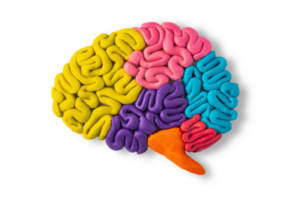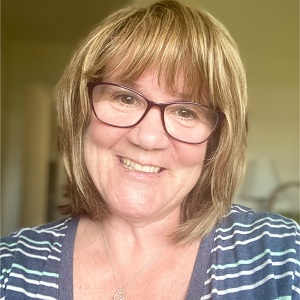With Nashua Prevention Coalition Director, Michelle Ricco Jonas
As the director of the Nashua Prevention Coalition, I recognize that many individuals think that substance use is harmless, a misconception that has far-reaching consequences. People start smoking thinking they will be able to stop anytime. Or perhaps they vape instead because they think it is a safer choice. Maybe they use cannabis occasionally because they think it is natural, therefore harmless, (not knowing how the potency has increased over the years, increasing the risk of psychosis.) Still, others take what they think are prescription drugs or pills, unaware they have been contaminated with fentanyl. All substance use carries some degree of risk, and becoming dependent on the substance is just one of those risks. The Partnership’s recent podcast interview with Dr. Elizabeth Harwood, a Nashua Prevention Coalition member and professor of addiction science, explains how substance use impacts our bodies, brains, and behavior in a way that’s easy to grasp. I would like to delve deeper into this topic in the following discussion.
Substance Use Alters Brain Chemistry
 One of the most critical messages in substance use education is acknowledging its profound impact on a person’s brain chemistry. Alcohol and other drugs can disrupt the delicate balance of neurotransmitters, altering mood, behavior, and decision-making. It’s essential to know that substance use disorder (SUD), formerly called “addiction”, is not merely a matter of willpower, but a complex interplay of biological and environmental factors. When we understand that SUD is a chronic and treatable health condition, then we can begin to address the stigma, shame, and fear that makes it so difficult for people to ask for help. Reducing stigma around substance use will help people get treatment earlier and reduce the risk of overdoses from using alone or in secrecy.
One of the most critical messages in substance use education is acknowledging its profound impact on a person’s brain chemistry. Alcohol and other drugs can disrupt the delicate balance of neurotransmitters, altering mood, behavior, and decision-making. It’s essential to know that substance use disorder (SUD), formerly called “addiction”, is not merely a matter of willpower, but a complex interplay of biological and environmental factors. When we understand that SUD is a chronic and treatable health condition, then we can begin to address the stigma, shame, and fear that makes it so difficult for people to ask for help. Reducing stigma around substance use will help people get treatment earlier and reduce the risk of overdoses from using alone or in secrecy.
Perhaps even more alarming is the fact that substance use, especially when started at a young age, is detrimental to a developing brain. Adolescents are in a critical phase of development, and introducing substances during this time can lead to lifelong changes that affect their cognitive abilities, emotional regulation, and future life choices. This underscores the urgency of prevention efforts, particularly targeting our youth.
Open Communication with Youth Matters
 Parents and guardians play an important role in helping young people avoid substance use. Engaging in open and honest conversations with the children you care for about the negative consequences of substance use is a powerful preventive tool. It’s not about scare tactics, but rather providing them with fact-based information about the risks involved. Encourage questions and discussions to foster understanding and trust.
Parents and guardians play an important role in helping young people avoid substance use. Engaging in open and honest conversations with the children you care for about the negative consequences of substance use is a powerful preventive tool. It’s not about scare tactics, but rather providing them with fact-based information about the risks involved. Encourage questions and discussions to foster understanding and trust.
Multiple Paths to Recovery
Recovery from SUD is not a one-size-fits-all journey, and what works for one person may not work for another. Keeping an open mind and exploring various options tailored to individual needs and circumstances gives individuals the best chance of success. Among these strategies are harm reduction methods, designed to minimize the adverse consequences associated with substance use.
We can do our part by supporting safe, effective, cost-saving tools that save lives, such as: syringe provision and exchange services, the overdose reversal drug naloxone, fentanyl and xylazine test strips, and medications for SUD or medication-assisted treatment (MAT) – often used successfully in combination with counseling and behavioral therapies.
Help Is Available
We’ve got to do everything within our power to help people who use drugs get well and stay well. SUD’s are fundamentally rooted in how our brains develop and function. When we understand the facts that place people at risk, we can support the things that work to reduce these risks, protect people and support recovery. Most importantly, we can continue to educate ourselves and others so that we collectively reduce stigma, acknowledge trauma caused by substance use, encourage people to never use substances alone, and to seek help when they are ready. One day we will move beyond the management of SUD to curing it.
For accurate and reliable information on substance use prevention, community organizations like ours, the Nashua Prevention Coalition, and The Partnership @drugfreeNH, are an invaluable resource. We offer fact-based information and strategies to equip parents, educators, and communities with the knowledge needed to prevent youth substance use and engage individuals. Staying informed and proactive is essential.
Resources
 Michelle Ricco Jonas, MA
Michelle Ricco Jonas, MA
Michele is the Director of the Nashua Prevention Coalition with 30 years of experience coordinating prevention for youth, families, and communities at the local, state, and federal levels.

